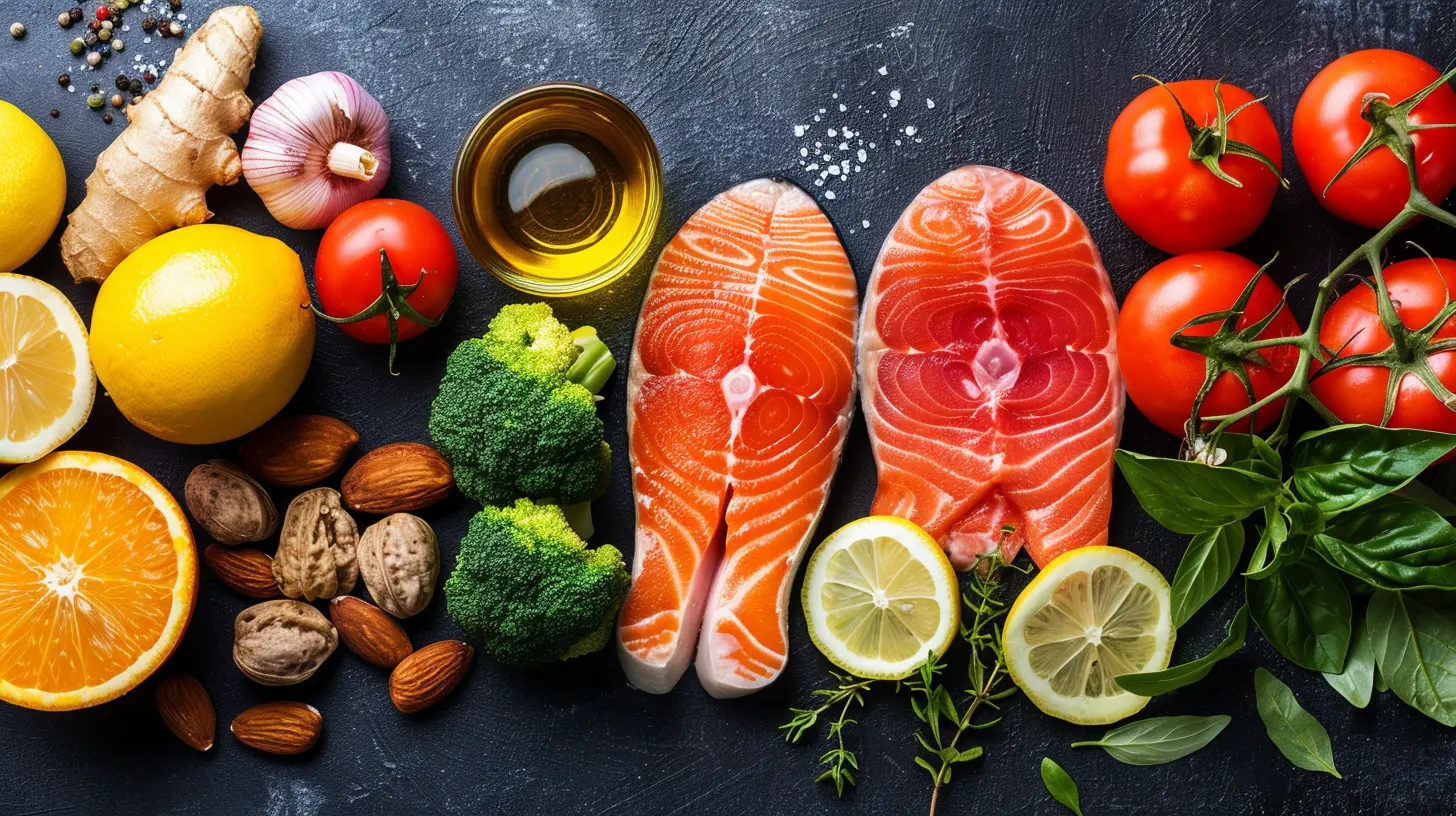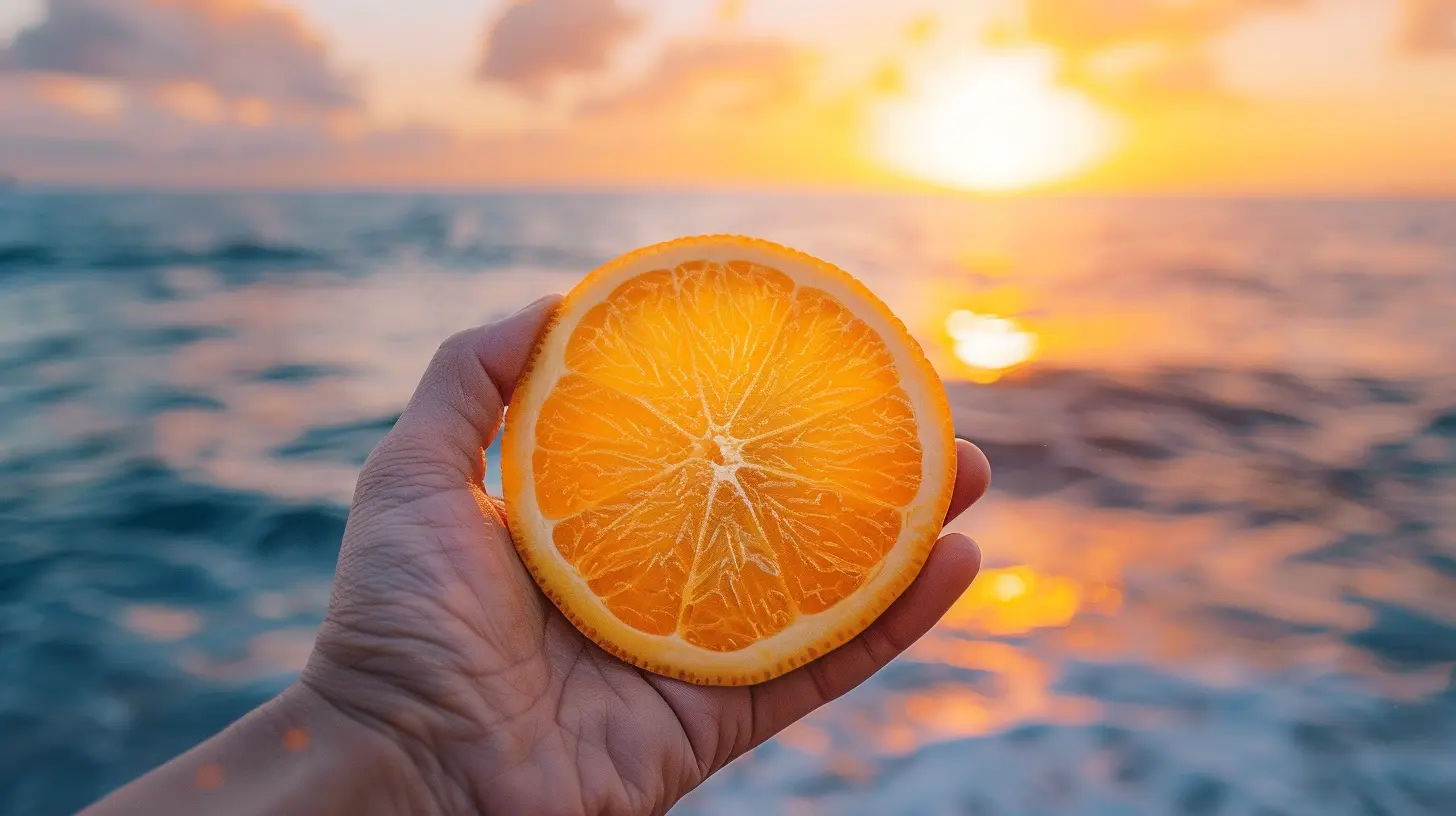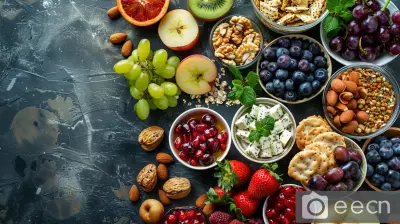How to Naturally Increase Your Vitamin D Levels Without Supplements
19 July 2025
Vitamin D, often called the "sunshine vitamin," is essential for maintaining strong bones, boosting immunity, and even elevating your mood. But with today's indoor lifestyle and excessive sunscreen use, many people find themselves deficient in this crucial nutrient.
While supplements are an easy fix, they’re not the only way. In fact, nature has provided us with plenty of ways to boost our vitamin D levels naturally—no pills required! Let’s dive into the best natural ways to soak up more of this essential vitamin.

Why Is Vitamin D Important?
Before we jump into the how, let's talk about the why. Vitamin D plays a crucial role in several bodily functions, including:- Supporting Bone Health – It helps your body absorb calcium and phosphorus, keeping your bones strong and reducing the risk of fractures.
- Boosting Immunity – Vitamin D enhances immune function, helping your body fight off infections and diseases.
- Regulating Mood – Low vitamin D levels have been linked to depression, anxiety, and mood swings.
- Reducing Inflammation – It plays a role in lowering inflammation, which is linked to many chronic diseases.
Now that we understand why it’s important, let’s explore natural ways to get more of it!

1. Get More Sunlight
The Best Source of Vitamin D? The Sun!
The most effective and natural way to get vitamin D is sunlight exposure. When UVB rays hit your skin, your body produces vitamin D on its own. Pretty amazing, right?But here’s the catch—many people don’t get enough sun exposure due to indoor work, cloudy weather, and overuse of sunscreen.
How Much Sunlight Do You Need?
The amount of sunlight needed depends on several factors, including your skin tone, location, and time of year. Here are some general guidelines:- Light skin tones – 10 to 30 minutes of midday sun a few times a week.
- Darker skin tones – 30 minutes to an hour, as melanin reduces vitamin D production.
- Winter months – If you live far from the equator, you may need more exposure or rely on other sources.
Best Practices for Safe Sun Exposure
- Aim for midday sun – Between 10 AM and 3 PM is when UVB rays are most effective.- Expose more skin – Wearing shorts and a T-shirt allows for greater absorption.
- Limit sunscreen use – While sunscreen is crucial for preventing burns, using it all the time blocks vitamin D production. Try spending a few minutes in the sun before applying sunscreen.

2. Eat Vitamin D-Rich Foods
While sunlight is the best source, certain foods naturally contain vitamin D. Including them in your diet can support your levels, especially if you don't get enough sun exposure.Best Natural Sources of Vitamin D
- Fatty Fish – Salmon, mackerel, sardines, and tuna are excellent sources.- Egg Yolks – Opt for pasture-raised eggs, as they contain more vitamin D.
- Mushrooms – Some mushrooms, particularly those exposed to sunlight, are high in vitamin D.
- Beef Liver – Not everyone's favorite, but it's packed with vitamin D and other essential nutrients.
Fortified Foods
While not naturally occurring, some foods are fortified with vitamin D:- Dairy products (milk, yogurt, and cheese)
- Plant-based milks (almond, soy, oat)
- Orange juice
- Cereals

3. Maintain a Healthy Gut
Your gut plays a massive role in absorbing nutrients, including vitamin D. Even if you get plenty of sun and eat the right foods, a poor gut microbiome can make it harder for your body to use vitamin D effectively.Ways to support your gut health:
- Eat more fiber – Whole grains, vegetables, and fruits feed healthy gut bacteria.
- Include probiotics – Yogurt, kefir, sauerkraut, and kimchi support a balanced microbiome.
- Reduce processed foods – Artificial ingredients and excessive sugar harm gut bacteria.
A well-functioning gut ensures that whatever vitamin D you obtain is effectively absorbed and utilized.
4. Maintain a Healthy Weight
Did you know that excess body fat can store vitamin D and make it less available for your body to use? That means even if you get enough vitamin D, it might not be circulating properly.If you're overweight, focusing on a balanced diet and regular exercise can help improve vitamin D availability in your body.
Simple strategies include:
- Eating whole, nutrient-dense foods.
- Engaging in daily movement—walking, yoga, or strength training.
- Staying hydrated to support metabolism and nutrient absorption.
5. Spend More Time Outdoors
If you're struggling to get enough sun exposure, try incorporating more outdoor activities into your routine. Whether it's gardening, hiking, or simply taking a walk during lunch, spending time outside helps your body naturally produce vitamin D.Some ideas to get more outdoor time:
- Take your workout outside – Walking, jogging, or doing yoga in the park.
- Have lunch outside – A quick 15-minute break in the sun can make a difference.
- Engage in outdoor hobbies – Gardening, biking, or even reading in the backyard.
By simply being outside more often, you're giving your body more chances to soak in that essential vitamin D.
6. Reduce Stress and Get Enough Sleep
Believe it or not, chronic stress and poor sleep can mess with your body's ability to absorb and use vitamin D.How Stress Affects Vitamin D Levels
- Increases inflammation, which can block vitamin D’s benefits.- Weakens the immune system, reducing the protective effects of vitamin D.
Tips to Reduce Stress
- Practice deep breathing or meditation.- Engage in relaxing activities like reading or spending time in nature.
- Get at least 7–9 hours of quality sleep every night.
When your body is well-rested and stress-free, it functions optimally, making better use of the vitamin D you naturally obtain.
7. Limit Alcohol and Caffeine
Both alcohol and excessive caffeine can interfere with how your body absorbs and processes vitamin D.- Alcohol impairs liver function, which is crucial for vitamin D metabolism.
- Too much caffeine can disrupt calcium absorption, affecting vitamin D’s bone-strengthening benefits.
You don’t have to give them up completely, but moderation is key! Try switching to herbal teas or drinking water-rich foods like cucumbers and watermelon to stay hydrated without overloading on caffeine.
Final Thoughts
Boosting your vitamin D levels doesn’t have to involve supplements. By making a few lifestyle changes—getting more sunlight, eating vitamin D-rich foods, taking care of your gut, and managing stress—you can naturally support your body’s ability to maintain optimal levels.Small, consistent habits can make a big difference in how you feel, from stronger bones to a better mood and improved overall well-being. So go outside, soak up some sun, and nourish your body the way nature intended!
all images in this post were generated using AI tools
Category:
VitaminsAuthor:

Eileen Wood
Discussion
rate this article
1 comments
Levi Jennings
This article offers practical strategies for enhancing vitamin D levels naturally, emphasizing sun exposure, dietary sources like fatty fish and fortified foods, and lifestyle adjustments. The focus on natural methods appeals to health-conscious readers seeking holistic approaches. However, individual factors like skin type and geographic location should be considered for optimal vitamin D synthesis.
August 6, 2025 at 4:51 PM

Eileen Wood
Thank you for your insightful comment! It's true that individual factors play a crucial role in vitamin D synthesis, and I appreciate your emphasis on tailored approaches for enhancing levels naturally.


